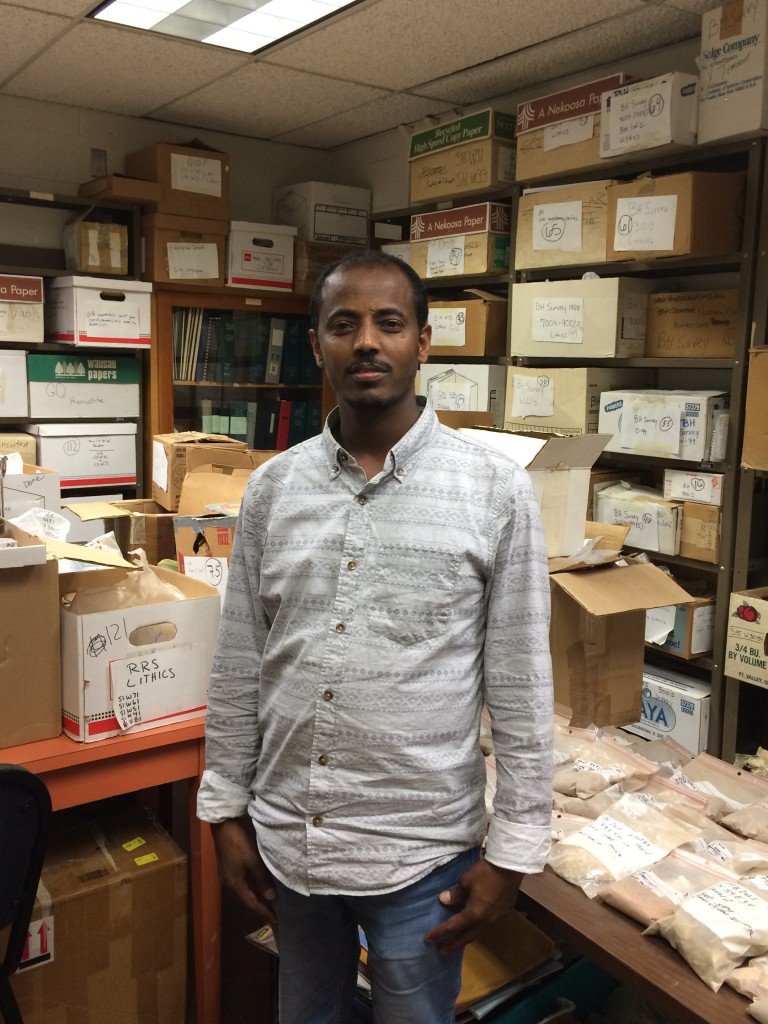Meet Our 2015 Wadsworth International Fellows: Abebe Mengistu
 The Wadsworth International Fellowship provides the opportunity for students in countries where anthropological education is underrepresented to receive world-class training at a university abroad. In the first of a series of posts introducing this year’s new cohort of fellows, we meet Abebe Mengistu of Ethiopia, who will be studying paleoanthropology at the University of Florida.
The Wadsworth International Fellowship provides the opportunity for students in countries where anthropological education is underrepresented to receive world-class training at a university abroad. In the first of a series of posts introducing this year’s new cohort of fellows, we meet Abebe Mengistu of Ethiopia, who will be studying paleoanthropology at the University of Florida.
My interest in archaeology developed while obtaining my B.A. degree in History at Addis Ababa University in Ethiopia, followed by my employment opportunity to work as cultural expert in the World Heritage Sites of Lalibela northwestern part of Ethiopia. During the time I was working Lalibela, I had the opportunity to obtain archaeological excavation and surveying experience with various researchers. This archaeological field work opportunities in Lalibela laid the foundation for my interest in studying archaeology, an interest that lead me to pursue M.A. degree in archaeology from Addis Ababa University in 2011. After my M.A. degree, I had the opportunity to work as an archaeologist for the Authority for Research and Conservation of Cultural Heritage (ARCCH) in Addis Ababa, Ethiopia for 2 years which has opened me more opportunity to involve in more archaeological research projects and to decide my future research interest and specialization. Due to this, in September 2013 and I went to Portugal and joined Polytechnic Institute of Tomar to Study another M.A. degree to benefit from a specialization in quaternary and prehistoric archaeology.
For my PhD research, I am interested to conduct archaeological research on understanding lithic technology that can make important contributions for understanding the dynamics of prehistoric societies. Particularly, I am interested on Late Pleistocene period, which is a very crucial period to understand modern humans behavioral pattern and their paleoenvironmental adaptation which uncovered on limited geographical regions where the prehistoric human population took refuge and later radiated elsewhere. The project I am currently developing in Ethiopia focuses on understanding cultural changes of hunter-gatherers of the Late Pleistocene through close examination of land-use and mobility patterns, subsistence strategies, symbolic and social behaviors and technological innovations.